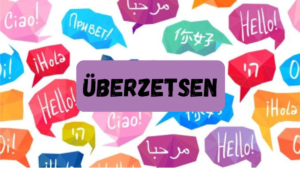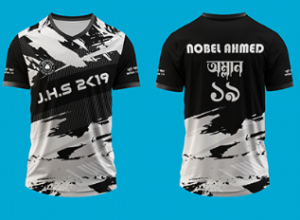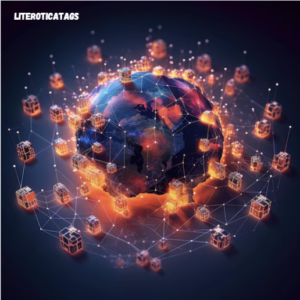Olympus Scanlation: A Deep Dive into the World of Fan Translations
In recent years, the world of Korean and Chinese manhwa and webtoons has skyrocketed in popularity across the globe. While these works are primarily published in their native languages, an international fanbase has emerged, hungry for translations. One of the fan-driven groups helping bridge the gap between non-English webcomic lovers and these captivating stories is Olympus Scanlation.
In this article, we’ll delve into what makes Olympus Scanlation a key player in the fan translation scene, offering comprehensive insights, analyses, and unique perspectives on its services. We will explore the importance of scanlation communities, the challenges they face, the ethics of fan translations, and their impact on the global reach of Korean and Chinese digital comics.
Contents [hide]
- 1 What is Olympus Scanlation?
- 2 The Popularity of Korean and Chinese Webtoons
- 3 How Olympus Scanlation Works
- 4 Ethical Considerations in Fan Translation
- 5 Challenges Faced by Olympus Scanlation and Other Groups
- 6 Why Olympus Scanlation Stands Out
- 7 The Future of Olympus Scanlation
- 8 FAQs About Olympus Scanlation
- 9 Conclusion
What is Olympus Scanlation?
Olympus Scanlation is a fan-driven community that translates Korean and Chinese webcomics, or manhwa and manhua, into Spanish. This group, like many other scanlation teams, aims to make non-English works more accessible to a Spanish-speaking audience. Olympus Scanlation works on translating popular webtoons and manhwa to meet the needs of fans who do not speak Korean or Chinese but are deeply invested in these stories.
While scanlation groups often fly under the radar compared to large, corporate translation services, they play a significant role in spreading the popularity of Asian digital comics to the Western world. What distinguishes Olympus Scanlation is its specialization in the Spanish language, filling a niche market in the fan translation world.
The Role of Fan Translation Communities
Fan translation communities like Olympus Scanlation are crucial in building a global fanbase for Korean and Chinese webtoons. With English being the dominant language for international content distribution, many fans in other parts of the world rely on groups like Olympus to access their favorite series in a language they understand.
Fan translation or “scanlation” refers to the process of scanning, translating, editing, and publishing webcomics or manga that have yet to be officially licensed in other regions. Olympus Scanlation focuses on Korean and Chinese works, filling the void where official translations have not been made available, particularly for Spanish-speaking fans.
The Popularity of Korean and Chinese Webtoons
Before diving further into Olympus Scanlation, it’s essential to understand the rise of Korean and Chinese digital comics, commonly referred to as manhwa (Korean) and manhua (Chinese). Over the last decade, these webtoons have garnered a massive following globally, thanks in part to their innovative storytelling, diverse genres, and striking visual art.
Why Webtoons are Dominating the Digital Space
- Unique Storytelling: Unlike traditional comics, manhwa and manhua often have storylines that mix fantasy, romance, thriller, and slice-of-life themes, appealing to a broader range of audiences. These webcomics also tend to tackle unconventional or controversial topics, providing a refreshing change for readers who might feel saturated by Western content.
- Format Adaptation: Webtoons are often designed with mobile readers in mind, making them accessible to a generation that consumes content primarily through their smartphones. The vertical-scrolling format enhances the reading experience, allowing for more dramatic storytelling through spacing and pacing.
- Cultural Appeal: Korean and Chinese culture, fueled by the Hallyu wave (Korean Wave) and China’s growing influence on global media, have made these webcomics more appealing to Western readers.
Olympus Scanlation’s Role in Popularizing Non-English Webtoons
While the manhwa and manhua industries are booming, official translations can often lag behind or fail to cover all desired languages. This is where fan scanlation groups like Olympus Scanlation step in. By translating popular Korean and Chinese works into Spanish, Olympus Scanlation helps non-English-speaking fans engage with the material in their native language, expanding the global fanbase.
How Olympus Scanlation Works
The scanlation process is more complex than it might initially seem. It involves a series of steps that ensure that the content is accurately translated, beautifully edited, and smoothly published. Let’s break down the steps that Olympus Scanlation likely follows:
1. Sourcing Raw Materials
The first step involves acquiring the raw, untranslated versions of Korean and Chinese webcomics. This can either be through official channels or unofficial copies obtained by fans. Once these raw versions are in hand, the team can begin the translation process.
2. Translation
This step involves translating the dialogue and narration from the original Korean or Chinese into Spanish. Translators in fan groups are often volunteers who possess fluency in both the source language and the target language. Given the nuances of language, translators must also be sensitive to cultural differences, ensuring that humor, idioms, and context are appropriately adapted.
3. Cleaning and Typesetting
Cleaning refers to the process of removing the original text from the raw webcomics and preparing the images for the translated text. Typesetting involves placing the translated Spanish text back into the webcomic panels. This requires attention to detail, ensuring the font, size, and style match the comic’s tone.
4. Quality Control
To ensure that the translated product is polished, most scanlation groups, including Olympus Scanlation, have proofreaders and editors who double-check the translated text for grammar, spelling, and readability. They also verify that the meaning of the original dialogue has been accurately conveyed.
5. Publishing
Once the webcomic has passed quality checks, it is published online for Spanish-speaking audiences to enjoy. Olympus Scanlation may upload the translated work to its own website or distribute it through various forums and social media channels.
Ethical Considerations in Fan Translation
Scanlation groups like Olympus Scanlation operate in a legal gray area. While they provide a valuable service to fans, they often work on projects that are not officially licensed for translation. This has raised questions about the ethics and legality of fan translations.
Legal Issues
Webcomics, like all creative content, are protected by copyright laws. Translating and distributing these works without permission technically violates the intellectual property rights of the creators and publishers.
However, many scanlation groups, including Olympus Scanlation, argue that they help promote the series to a broader audience, often leading to increased demand for official translations and merchandise.
Impact on the Industry
While scanlation groups operate in a legal gray zone, they undeniably play a role in popularizing webtoons across the globe. Some publishers have even acknowledged the impact of fan translations on boosting sales and official releases. Still, many argue that scanlations should be discontinued once official translations are available to avoid harming the original creators.
Olympus Scanlation’s Stance
Most scanlation groups, including Olympus Scanlation, stress that they are fan-driven and nonprofit. Many groups are quick to drop projects once they become licensed in other regions, urging fans to support official releases. The primary goal of Olympus Scanlation is to share a love for these webcomics, rather than to profit from them.
Challenges Faced by Olympus Scanlation and Other Groups
Running a fan scanlation group comes with its unique challenges. From sourcing quality translations to balancing ethical concerns, Olympus Scanlation faces several obstacles:
1. Maintaining Quality
Ensuring that translations are accurate, culturally appropriate, and high-quality is no easy task. Olympus Scanlation relies on volunteer translators and editors, many of whom may not have professional experience. Balancing quality with timeliness can be a significant challenge.
2. Burnout of Volunteers
Since Olympus Scanlation is a volunteer-run group, members may experience burnout from the pressure of meeting deadlines and keeping up with popular series. This issue is common across all fan-driven scanlation groups, where there is often high turnover of staff due to the demanding nature of the work.
3. Legal Threats
Though scanlation groups like Olympus Scanlation may believe they are helping creators by expanding the fanbase, they still risk legal action from publishers who are protective of their intellectual property. Some groups have been forced to disband due to legal threats, while others operate in secrecy to avoid detection.
Why Olympus Scanlation Stands Out
Despite the challenges, Olympus Scanlation has managed to distinguish itself in several ways. Here’s why the group has earned a strong reputation in the fan translation community:
1. Focus on Spanish Language
Unlike many other scanlation groups that focus on English translations, Olympus Scanlation is one of the few dedicated to providing high-quality Spanish translations. This has allowed them to fill a niche for Spanish-speaking fans who may feel underserved by other scanlation communities.
2. Community Engagement
Olympus Scanlation has a strong connection with its audience. By leveraging social media and fan forums, they foster a sense of community among Spanish-speaking manhwa and manhua fans. This engagement helps build loyalty and keeps fans coming back for more translations.
3. Consistent Updates
In the scanlation world, consistency is key. Many fan groups struggle to keep up with the rapid pace of new releases, but Olympus Scanlation has managed to maintain a consistent schedule, ensuring that fans get regular updates of their favorite series.
The Future of Olympus Scanlation
As the popularity of Korean and Chinese webtoons continues to grow, the role of fan translation groups like Olympus Scanlation will likely remain relevant. However, the rise of official translations and the growing awareness of copyright issues could impact their operations.
The future may see more collaboration between publishers and scanlation groups, or perhaps even the evolution of scanlation into a more legitimate, recognized practice within the industry.
FAQs About Olympus Scanlation
Q: Is Olympus Scanlation legal?
A: Fan translation groups operate in a legal gray area. Olympus Scanlation, like many scanlation groups, does not have the official rights to translate and distribute webcomics. However, they do this for the love of the medium and often drop projects once official translations are available.
Q: Where can I read Olympus Scanlation’s translations?
A: Olympus Scanlation typically distributes its translations through its own website and fan forums. They may also use social media channels to engage with fans and share updates on new releases.
Q: How can I support the creators of the webtoons Olympus Scanlation translates?
A: The best way to support creators is to purchase official translations, buy merchandise, and follow the creators on social media. Scanlation groups often encourage fans to support the official releases once they are available.
Q: Can I join Olympus Scanlation as a translator or editor?
A: Many scanlation groups, including Olympus Scanlation, are volunteer-driven and often welcome new members to help with translations, editing, and other tasks. Keep an eye on their website or social media for recruitment announcements.
Q: Why are scanlations important to the webtoon community?
A: Scanlations allow international fans to access webcomics that may not be officially translated into their language. They also help increase the popularity of webtoons globally, which can lead to more official translations and support for creators.
Conclusion
Olympus Scanlation has become a cornerstone in the fan translation world, offering high-quality Spanish translations of Korean and Chinese webcomics. Despite the legal and ethical challenges, the group continues to play an essential role in bringing manhwa and manhua to a wider audience, particularly in Spanish-speaking communities. As the demand for webtoons continues to grow, scanlation groups like Olympus Scanlation will likely remain key players in shaping the global webtoon landscape.
By staying true to its mission of making webcomics accessible to all, Olympus Scanlation helps ensure that fans, regardless of language, can enjoy the vibrant and diverse world of Korean and Chinese storytelling.






















































Post Comment